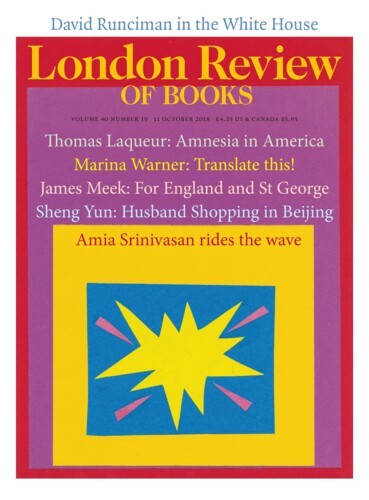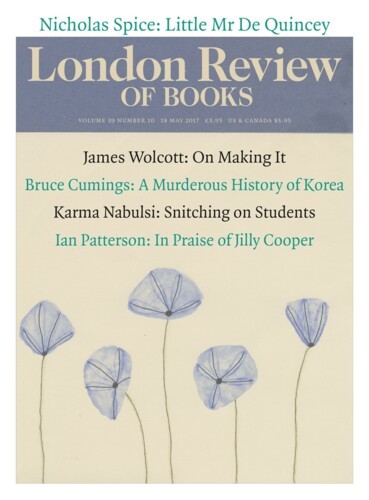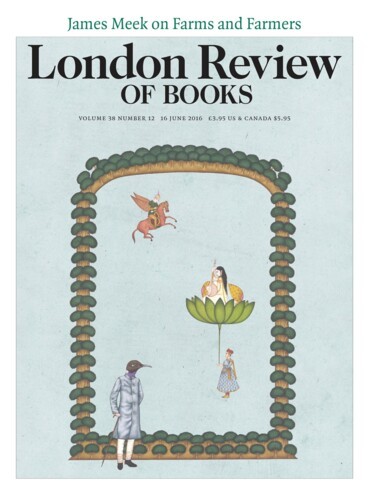The Stansted 15 – non-violent protesters who stopped an aircraft taking off with deportees to Ghana, Nigeria and Sierra Leone in March 2017 – have joined the ranks of highly motivated people willing to risk jail to stop a perceived injustice. The passengers on the flight included deportees who were subject to the Home Office’s then policy of ‘deport first, appeal later’, which the Supreme Court later ruled to be unlawful. The 15 got through the airport fence and blocked the path of the plane, causing the flight to be cancelled. Some of the deportees subsequently won the right to remain the UK. The 15 were found guilty under the Aviation and Maritime Security Act 1990 of ‘disrup[ting] the services of … an aerodrome, in such a way as to endanger or be likely to endanger the safe operation of the aerodrome or the safety of persons at the aerodrome’. They are awaiting sentence. The maximum is life imprisonment, but the question for the court is likely to be whether to give them a prison sentence at all.
Francis FitzGibbon
Francis FitzGibbon is a KC. He was chair of the Criminal Bar Association from 2016 to 2017.
Short Cuts: The Court of Appeal
Francis FitzGibbon, 11 October 2018
If you want to appeal against a guilty verdict given by a crown court jury you first have to seek permission from the Court of Appeal. For permission to be granted, a judge has to be satisfied there is an ‘arguable case’ that the conviction was ‘unsafe’. If so, the appeal is heard in full by a panel of three judges. The latest figures show that in 2016-17 the court...
In a death row appeal soon to come before the US Supreme Court, Robert McCoy will ask whether it is unconstitutional for defence counsel to tell a jury that his client is guilty, in defiance of the accused’s express instructions that he is innocent. McCoy’s lawyer did this in his 2011 murder trial in Louisiana, in a misguided attempt to get his client life imprisonment instead of the death penalty. The lawyer had rejected the opinions of psychiatrists who had found McCoy fit for trial, believing that he was insane and delusional, and that the only way to save his life was to tell the jury he had committed the three murders with which he was charged, in the hope of leniency. The jury promptly convicted McCoy of first-degree murder, and he was sentenced to death.
Short Cuts: Criminal Justice after Brexit
Francis FitzGibbon, 18 May 2017
After Brexit, the public face of criminal justice will look much the same as it does now. The UK has resisted many of the European Union’s moves towards harmonisation of substantive criminal law and procedure, and it is unlikely to use its new-found freedom from the restraints of EU law to decriminalise things like child pornography, cybercrime and people trafficking. The EU’s...
If We Leave
Francis FitzGibbon, 16 June 2016
If Britain votes to leave the EU it will take several years to disentangle what’s to be kept and what discarded from our EU-saturated legislation. The law of the European Union has left few areas of life in the UK wholly untouched even though the EU can only legislate in areas for which it derives what are known as ‘competences’ from the treaties member states have...
Read anywhere with the London Review of Books app, available now from the App Store for Apple devices, Google Play for Android devices and Amazon for your Kindle Fire.
Sign up to our newsletter
For highlights from the latest issue, our archive and the blog, as well as news, events and exclusive promotions.




